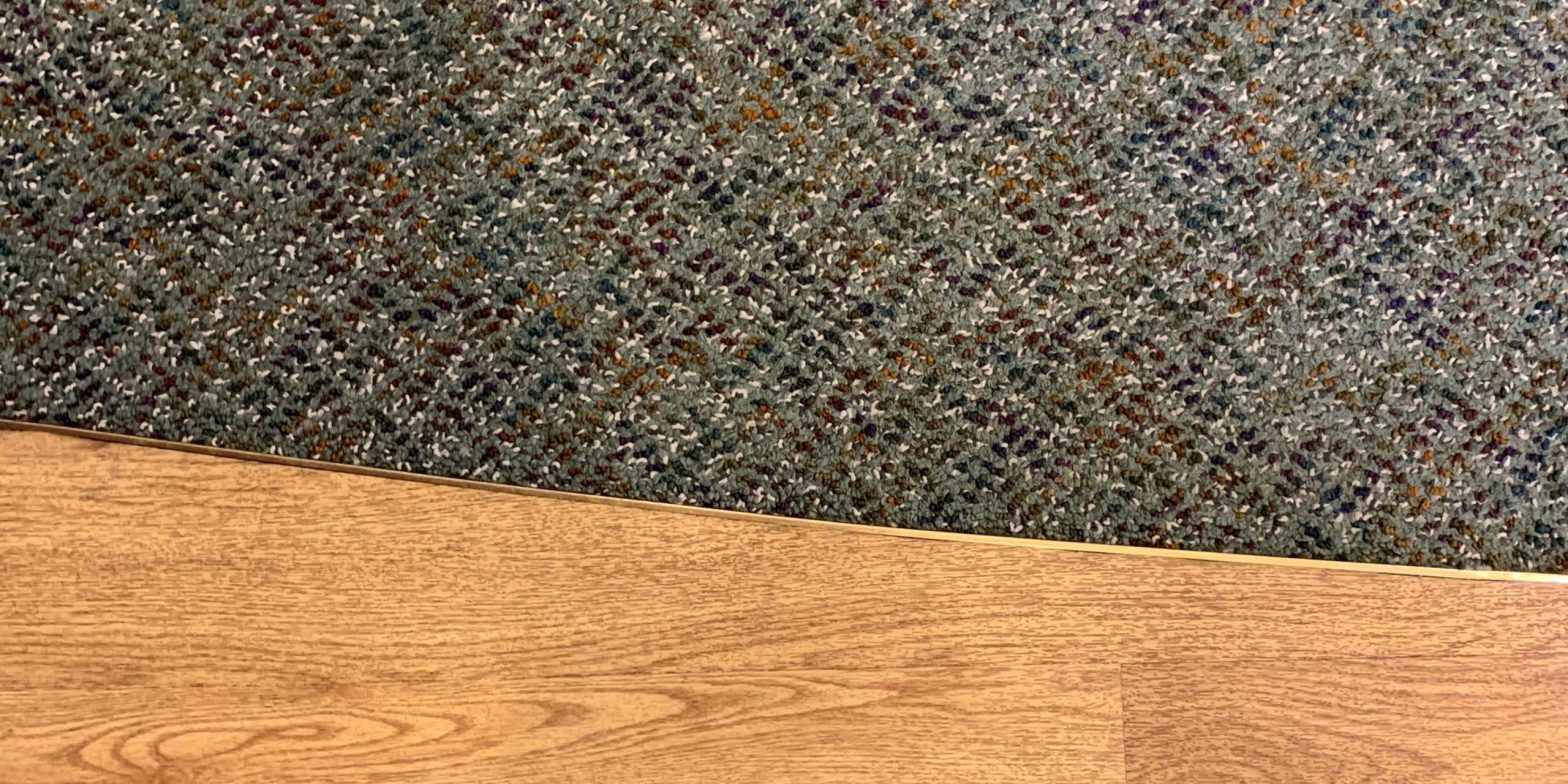Choosing between carpet and hardwood flooring is a major decision for homeowners, renovators, and even tenants looking to personalize a space. Both options offer unique benefits—and some drawbacks. The best choice for your home depends on lifestyle, budget, climate, maintenance preferences, and of course, design taste.
In this article, we’ll compare carpet and hardwood across key factors like cost, comfort, durability, health impact, resale value, and more to help you decide what works best for your space.

1. Comfort and Feel
Carpet: Soft, Warm & Cozy
Carpet is known for comfort underfoot, especially in bedrooms, nurseries, and lounges. It provides insulation during winter and reduces noise—a key benefit in upstairs rooms or apartments.
According to the Carpet and Rug Institute (2023), carpet can also improve indoor acoustics by absorbing up to 70% of sound (CRI, 2023).
Hardwood: Sleek, Firm & Stylish
Hardwood feels firm and cool, making it ideal for warmer climates. While it lacks the plushness of carpet, it gives a clean, refined aesthetic and can be softened with area rugs.
2. Durability and Lifespan
Hardwood: Built to Last
Hardwood floors, when maintained properly, can last 50+ years. They’re scratch-resistant and can be sanded and refinished multiple times.
The National Wood Flooring Association notes that hardwood adds decades of value to a home, particularly oak, maple, and walnut species (NWFA, 2023).
Carpet: Prone to Wear
Carpet has a shorter lifespan—typically 8 to 15 years, depending on quality and usage. High-traffic areas like hallways tend to show signs of wear quickly. Pets and children may accelerate this.
3. Cost Considerations
Carpet: Lower Upfront Cost
Carpet is generally cheaper to purchase and install, with costs ranging from $5 to $15 per square foot (including underlay and labor).
Hardwood: Higher Initial Cost, Longer Value
Hardwood installation costs start around $10 to $25 per square foot, depending on the wood type and finish. However, its longevity and impact on resale value make it a long-term investment.
Zillow’s 2022 report found homes with hardwood floors sold for up to 2.5% more than homes with standard flooring (Zillow, 2022).
4. Maintenance and Cleaning
Carpet: Needs Regular Vacuuming
Carpet requires frequent vacuuming and occasional deep cleaning to remove dust, allergens, and stains. Spills need to be addressed immediately to avoid permanent staining.
Hardwood: Easy to Clean
Hardwood is easier to maintain—a broom and damp mop are usually sufficient. It doesn’t trap dust, dirt, or hair like carpet does, making it ideal for those with allergies.
The Asthma and Allergy Foundation of America (2023) recommends hardwood or tile for people with respiratory issues (AAFA, 2023).
5. Health and Allergies
Carpet: May Trap Allergens
While newer carpets are manufactured with better hypoallergenic materials, they can still trap dust mites, pet dander, and mold spores, especially in humid environments.
Hardwood: Hypoallergenic
Hardwood is non-porous, making it less likely to harbor allergens. It’s a cleaner choice for homes with asthma sufferers or pets.
6. Aesthetic and Design Impact
Hardwood: Timeless and Versatile
Hardwood floors have universal appeal and elevate almost any design style, from rustic to modern. They also make rooms appear larger and brighter.
Carpet: Colorful and Cozy
Carpet offers more texture and color options, making it easier to personalize spaces or create warmth in bedrooms and media rooms.
7. Climate Suitability
Carpet: Great for Cold Climates
Carpet helps insulate against the cold and reduces heating bills in colder environments.
Hardwood: Ideal for Warm Regions
Hardwood stays cool, which can be a relief in hotter climates, but may shrink or swell in areas with extreme humidity unless properly treated.
Engineered hardwood offers better moisture resistance than solid hardwood and may be more suitable for humid areas (Home Depot, 2022).
8. Resale and Property Value
Hardwood typically adds more resale value to a home than carpet. Buyers see it as a premium feature, while carpet—especially older carpet—can be a turn-off due to hygiene concerns.
A 2021 Realtor.com survey found that 54% of buyers preferred hardwood over carpet when house hunting (Realtor.com, 2021).
Ultimately, your lifestyle should guide your choice. Families with kids or seniors may prefer the softness of carpet. Those with pets, allergy sufferers, or a modern design style might lean toward hardwood.
